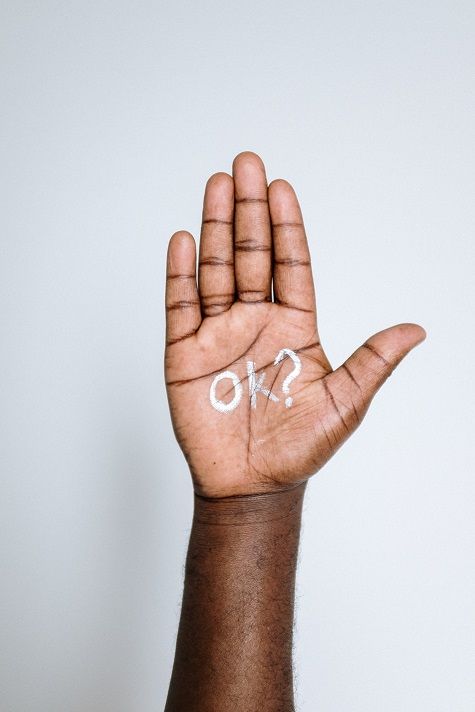Frequently Asked Questions

1. Is someone living with dementia at higher risk of becoming ill with the Coronavirus?
Having a long-term health conditions raises the risk of becoming ill with the Coronavirus. Some of the more common Long-Term health conditions are heart or blood vessel disease and diabetes which are more often seen in people living with dementia
There is some evidence that dementia itself adds a further risk on top of age and these other health conditions, but this is not certain. It is not clear why, but men and people from black and minority ethnic communities, with or without dementia, are also at increased risk. This link is not explained by age or long-term health conditions
This means that it is more important than ever to follow the rules as set out by the Government by following this link
2. I live with my Mum and I worry about going out shopping as I may bring the Coronavirus back to her. What can I do to make it as safe as possible?
There are some things you can do to make your trip to the shops less risky: -
- Don’t use public transport unless you have no alternative
- Use a face covering if you do have to use public transport. This does not have to be a mask – follow this link for advice on making a face covering
- When you are in the shops you need to follow the measures they have set in place to make it easier to follow social distancing rules for example using floor markings or a one-way system for safer queueing and shopping
- Wash your hands as soon as you get back home
If you pay attention to all of these suggestions you will be able to shop safely and reduce the risk of bringing the coronavirus infection back to your Mum.
3. I know that handwashing is really important to reduce the risk of getting the Coronavirus but I am finding it really difficult to get my Dad who has Alzheimer’s Disease to do this. Can you suggest anything that might help?
You are absolutely right; handwashing is particularly important. We are advised to wash our hands when we get back home after being outside, after blowing our nose, coughing or sneezing, and before eating or handling food. If your Dad has memory problems or is confused because of his dementia, he may struggle with remembering about hygiene. The following tips may help to encourage him to keep safe: -
- Put reminder posters up near hand basins
- Set reminders on digital devices e.g. set Alexa with a reminder ‘It’s time to wash your hands’
- Join in washing your hands with him while singing a song together
- Talk to him while you are both washing your hands e.g. ask him ‘what does the smell of the soap remind you of?’
- It might help to use a bar of soap rather than liquid soap which they may be less familiar with
- If you are using a bar of soap make sure it is a different colour than the sink
- Don’t criticise him if he gets it wrong – remind him of the right way to do it and encourage and praise him
If he is washing his hands more frequently you may notice that his hands are becoming very dry. It is a good idea to use hand cream or barrier cream after he has washed his hands to keep his skin healthy
It’s worth remembering that Coronavirus can survive on surfaces for several hours so it’s a good idea to have a regular routine for cleaning surfaces and items that are touched often such as remote controls, telephones, kitchen taps and door handles
4. My partner is really quite frail and I’m really concerned about doing the right thing if they become very ill with the COVID-19 illness. Can you give me any advice on what I need to do?
It is true that if a person with dementia does catch coronavirus, they are at higher risk of having severe symptoms. It is therefore sensible to plan ahead and know what you should do so that you can support your partner better
The best thing you can do is to follow the NHS advice:
- If it’s not an emergency, visit NHS 111 online. You will be asked to answer a number of questions and will then be told what you need to do next.
- If your partner develops symptoms of severe Covid-19 including severe difficulty breathing such as gasping, not being able to speak more than a few words, choking, or blue lips this is an emergency and you must call 999 for an ambulance
- Don’t take your partner to your GP, a pharmacy (chemist) or to hospital unless you are specifically told to
5. I am worried that if my partner, who has quite advanced dementia, has to go into hospital they will not understand about what he likes and doesn’t like and that as a result he will become even more distressed at being in a strange place with people he doesn’t know. Is there anything I can do to make things easier?
Dementia Diversity has an effective tool 'Uniquely Me' which can be used to record details about a person who isn’t able to share information about themselves easily. For example, it can be used to record the person’s:
- Usual routines and preferences
- Cultural and family background
- Important events, people and places from their life
Spending time completing the single A4 sheet with your partner and sharing it with the staff will be invaluable both to your partner and the nursing and care staff who will appreciate having the information to help them provide appropriate care
6. I don’t like to think about it but I know that if my Mum becomes seriously ill I may have to discuss her care with a doctor. Do you have any suggestions of how I can prepare for this so that she receives the care that she would want?
It is absolutely a good idea to plan ahead. If your Mum is able to, talk about this together now so that you know what her wishes for potential care are. It will be easier to do this at home in your own time
It can be difficult to think about what your Mum’s care needs may be in the future, it is always a good idea to plan ahead. During the current pandemic someone may get seriously ill quite suddenly. In addition, coronavirus may cause confusion, which will mean that any communication becomes extremely hard. If your Mum has to go into hospital you may only be able to see them for short periods, therefore you may not be able to talk to them in person at an important time
Try and talk to your Mum about the treatments that may be offered if she has to go into hospital with Coronavirus. Find out if she would want to be put on a ventilator to breathe for her or, if her heart or breathing suddenly stops, to have cardiopulmonary resuscitation (CPR). It is important that you find out what she thinks about balancing her comfort against prolonging her life and her personal approach to risk and quality of life
If your Mum decides that she does not want a particular treatment and she has the mental capacity to make this decision, she can make an advanced decision to refuse treatment. This is sometimes called a ‘living will’ and doctors must follow this
Alternatively, she can set out her future care wishes in an advance statement. Although an advance statement is not legally binding, doctors must take it into account when they make decisions about your Mum’s care
Your Mum may have already made and registered a Lasting Power of Attorney for health and welfare. If she has, then she may have given you or someone else the power to refuse life-sustaining treatment if she becomes unable to decide for herself. Life-sustaining treatments include CPR and ventilation
If your Mum becomes really ill it is important that you share any completed documentation with health care professionals who become involved in her care for example the GP, paramedics and hospital staff

Not found what you are looking for contact us we will try our best to help